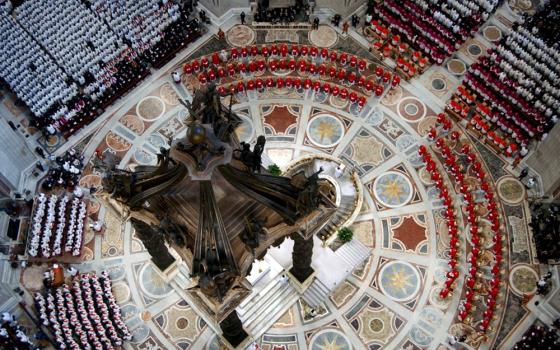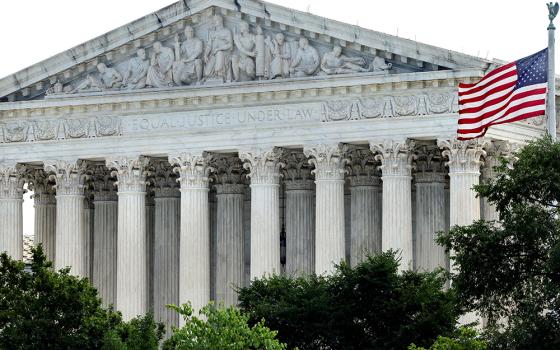A couple of summers ago, Washington experienced its first earthquake in years. I was at my home and it sounded like there was someone, and someone big, walking across the roof. Yesterday, Washington experienced a different kind of earthquake: The Graham family sold the Washington Post to Jeff Bezos, the founder of Amazon.com.
The sale is both hopeful and dreadful. It has long been clear that the Graham family was consistently behind the curve in making the transition from a print-driven forum, funded mostly by the lowly classified advertisement, to the new, still unformed age of the Smartphone and the internet. For example, the New York Times understood that it could now be printed and made available nationwide, not the Post. Such decisions are hard to turn back, which is a shame, because all-in-all, I think the Post is as good or better than the Times. Mr. Bezos is a creature of the new media environment and it can be hoped that he will discern opportunities the Graham family missed, keeping an important newspaper afloat in challenging times.
But, a newspaper has two bottom lines, only one of which has to do directly with profit. The other bottom line has to do with fierce independence, a commitment to getting the important stories and getting them right. If Mr. Bezos wants to ruin the thing he has bought, he need only start meddling with the news editors.
On one story, in which the Post and the Times have largely dropped the ball, it is doubtful Mr. Bezos will spur the Post to do a better job. I refer, of course, to the lack of serious, consistent, pervasive reporting on the way our American culture has gradually surrendered any and all important social goods to that first bottom line, the corporate profit line, the consequent growth of a low wage economy, and all the social ills that continue to flow from this surrender. It was the Allentown Morning Call, not the Washington Post, that reported on Amazon’s unwillingness to purchase air conditioners for its warehouses and, instead, hired paramedics to stand at the ready for employees overcome with heat strike. The corporate world from which Mr. Bezos comes may be brave and it may be new, but it is also inhumane.
The dread only starts with that story in the Allentown newspaper. Amazon has almost single handedly destroyed the world of publishing, forcing countless small, independent bookstores out of business, and wreaking havoc with the publishing houses which, for all their lack of business acumen, brought, and are still trying to bring, a high degree of editorial insight to their task. Regular readers will know that I consistently urge readers to purchase a book I am reviewing at their local independent bookstore, some of which, such as my old stomping ground, Kramerbooks & Afterwords Café, remain vibrant and successful. I am at a loss as to how to help the publishing houses and, sadly, counsel young writers to think twice before drafting a book proposal because they likely will not be able to live on their advance or their royalties.
Of course, the world of publishing had to change. Of course, small businesses and large publishing houses needed, like the Post, to adapt and many did not. Still, it is scary to think of a single corporate giant exercising a de facto monopoly on what the nation reads. I am reminded of Voltaire’s comment about religion in England: “If there were only one religion in England, there would be danger of despotism, if there were two, they would cut each other’s throats, but there are thirty, and they live in peace and happiness.” Voltaire proved wrong about religion in England: The cult of religious pluralism has, for a variety of reasons, gutted religion of cultural significance: Those feet may have walked on England’s green and pleasant land in ancient times, but they are not expected back anytime soon. Still, the danger of despotism in publishing exists, not an obvious political despotism, but a cultural despotism in which opinions that do not please the powers-that-be are denied access to the printing press and the Kindle. I worry about this deeply.
Under the Graham’s, that Post became part of “the Establishment,” a phrase coined by the late, great British newman Henry Fairlie. Mr. Bezos would be well advised to hire some more writers like Fairlie whose editorial motto was “Bite the hand that feeds you.” It could be said of Fairlie, as it cannot be said of many of the Post’s opinion writers, that you looked forward to seeing how he would come down on this issue or that. Too many of the Post’s columnists have all the unpredictability of a Leni Reifenstahl flick. E.J. Dionne writes columns, like yesterday’s about the way religion intermixes with politics, that are written by almost no one else, certainly not in the mainstream media. Melinda Henneberger’s voice is always fresh, informed, and thoughtful. Michael Gerson is always a good and provocative read. Ruth Marcus is judicious. Charles Krauthammer may be predictable, but he is still exceedingly smart and his articles exceedingly well done. But, when was the last time a George Will column made you think differently about anything? Or Gene Robinson’s? And, there is a new generation of op-ed writers who largely play the part of political propagandist. It would be nice to see some new and fresh writers on the Post’s op-ed page.
I am a fuddy-duddy when it comes to the new technological age of journalism. I do not own a Smartphone. I now have a Twitter account but do not know how to use it and do not particularly care to know. Each morning, while finishing Ambrose’s first walk, I snatch the paper from the front steps, pour a cup of coffee, light a cigarette, and read my morning Post. I like the feel of a newspaper. I like finding the article I was not looking for, on a subject about which I knew nothing previously. Alas, the web is very bad at delivering serendipity: the marketers at Amazon can tell me that if I like book A, I might be interested in these five other books on the same or similar topic, but those marketers cannot know that I purchased a new grill and am in need of a cookbook, or that I am traveling to someplace new next month and need a good guidebook. There is still nothing like wandering and wondering through a bookstore.
When I go home to Connecticut, the worst part of the time there is that the Hartford Courant is now a much slimmer version of the newspaper I grew up with, although this regrettable adjustment in my morning routine is offset by the time with my dad, the cool country air, and the ready accessibility of restaurants that serve whole belly clams! I do not know how long I will get the morning paper delivered to my door each morning here in Washington. I hope it is for a long time. I hope the paper that arrives will be fresher and better, but I fear it will, over time, be driven by corporate concerns more than editorial ones. Maybe not: the $250 million purchase price is, it turns out, a sliver of Mr. Bezos’ net worth so maybe this is just a toy for him and he will leave it alone when not actually playing with it. I doubt it: Rich people do not become rich by indulging nostalgia.
Most of all, I hope that Mr. Bezos will take the time to learn about the history of journalism in the American experiment in democracy. His may be a private interest in his new purchase, but it is the most public of trusts. Democracy cannot live without diverse and vibrant expressions of public opinion and sound, relentless, reporting on the times in which we live. Other wealthy people have purchased newspapers and magazines and made them better: One thinks immediately of Marty Peretz who took a moribund New Republic and made it a must-read journal. But, Peretz was, and is, a man of learning and culture. Bezos is a man of business. It takes a lot more effort to hope when an institution like the Post is turned over to someone who has risen from world possessed of what Alec MacGillis has pointedly called a “faster-cheaper-further mindset that scratches away daily at our communal fabric.” That mindset is ruining much of value in our culture. I hope it will not ruin the Post.





